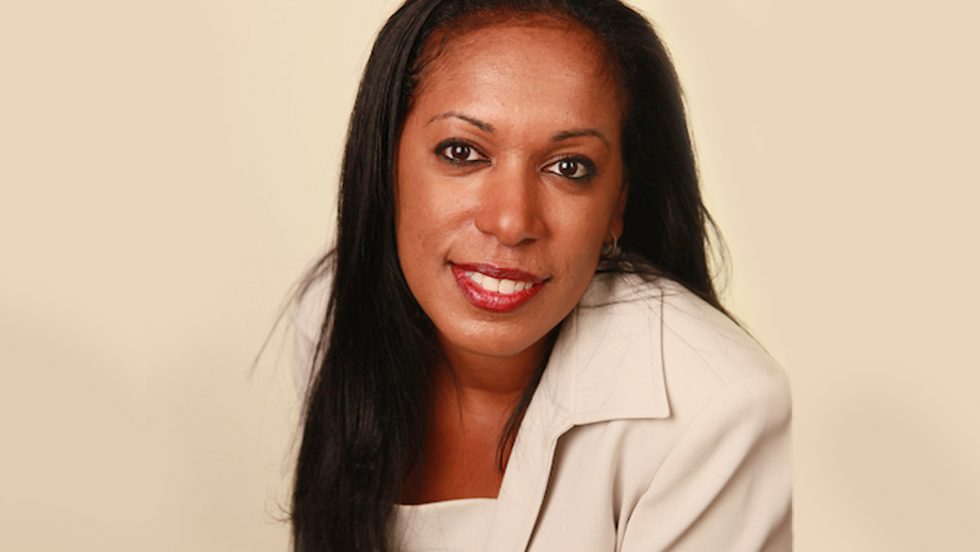
When Nicole Daisy-Etienne, PhD ’05, learned in March 2020 that a Hempstead student in her care had COVID-19 symptoms and a parent too afraid of immigration to get the child medical care, the Derner Hempstead Child Clinic director and clinical supervisor went into action. She pulled together a newsletter containing all the places the students in the Hempstead Union Free School District and their families could get medical help, launching what would become a yearlong, monthly approach to helping an already socioeconomically disadvantaged community deal with the impact of the pandemic.
And that was only a few months after she had taken on her new role. She was appointed to lead this community-based psychotherapy program in Fall 2019, following Professor Kirkland Vaughans, PhD ’85, who served as clinic director for eight years.
Since 2015, the Gordon F. Derner School of Psychology has sponsored a clinic at which Derner clinical psychology and school psychology doctoral students, under the direction of Dr. Vaughans, provide individual and family psychotherapy to children and teens from the community of Hempstead, New York. The children experience a range of difficulties from ADHD to post-traumatic stress disorder.
The newsletter—which is now a quarterly motivational tool sent to the entire school district—is one of the ways Dr. Daisy-Etienne and her staff meet the clinic’s mission to provide therapy to children in kindergarten through 12th grade and their families within the Hempstead community. Since Fall 2019, the clinic has been based at the Hempstead middle school but online telehealth has been implemented since March 2020 to ensure the safety of the doctoral students and patients within the community.
Another mission of the clinic is to work with the doctoral students and postdoctoral students at the Gordon F. Derner School of Psychology. The current number of students doing the externship at the clinic to obtain clinical training has increased from five in 2020 to 12 in 2021, with 14 enrolled for this school year. In addition, this fall, students from the School of Social Work will be providing case management and therapy. Dr. Daisy-Etienne, who is also an adjunct professor at Derner, said the students are interested in working with the community.
“It’s a challenging population because there’s a lot of guardedness and a lot of trauma within the community. One of the things we want to do is train the doctoral students and the social workers in the school district in mentalization-based therapy, an evidence-based psychodynamic treatment, so they can, in turn, help students to improve their self-regulation,” she said. Ionas Sapountzis, PhD, associate professor at Derner, provides training in mentalization during the case conferences, which is a place where the students are taught to apply the skills that they are learning.
In May, to help the doctoral students process some of the difficult trauma cases they were experiencing due to the impact of COVID on the Hempstead community, Dr. Daisy-Etienne initiated two-hour, weekly case conferences. “These have also been valuable during this challenging year for postdoc students and doctoral students in training,” she said.
Another initiative she introduced in March 2020 was to offer individual telehealth therapy via Zoom for school-aged children as well as a virtual parent support group, individual therapy for parents, and parent and student workshops. The clinic has been treating 75 children and five parents who did individual therapy and a few who did group therapy. “Compared to previous years, where we had no parent involvement, that was huge for us to be able to tap into a community that’s very guarded,” Dr. Daisy-Etienne said.
Throughout the pandemic, Dr. Daisy-Etienne said the Adelphi students “have been highly motivated to engage our students and have been instrumental and creative in terms of finding ways to do play therapy online.”
Clinical measures have been used at the clinic to assess symptoms and progress. Dr. Vaughans implemented the Behavior Assessment System for Children, third edition (BASC-3), in Fall 2019, a measure that assesses emotional and behavioral symptoms. Since then, Drs. Vaughans and Daisy-Etienne have implemented the Reflective Functioning Questionnaire (RFQ), to assess mentalization and self-regulation, and the Adverse Childhood Experiences (ACE) screening, which is requested for both the parent/guardian and child to assess intergenerational trauma.
“The RFQ assesses reflective functioning or mentalizing, which refers to our capacity to understand the mental states of ourselves and others, such as feelings, desires and attitudes. This fall, we hope to begin research with the data we have collected from the measures,” Dr. Daisy-Etienne said.
The goal is to both determine how to provide better services to the community at large, as well as open the door to having doctoral students use the data for their research—two more ways she said the clinic is meeting its original mission.
“One of the reasons that Dr. Vaughans founded this clinic was because kindergartners were getting suspended or expelled from school, and he wanted to make sure that they and their parents have the tools to help the students to regulate their emotions better so they’re not breaking school rules,” she said, adding that Jacques Barber, PhD, dean of the Gordon F. Derner School of Psychology, has supported and advocated for the clinic from day one. “I’m really happy to be a part of the clinic—especially during this challenging year—and to help Dr. Vaughans’ vision come to fruition and continue to grow.”